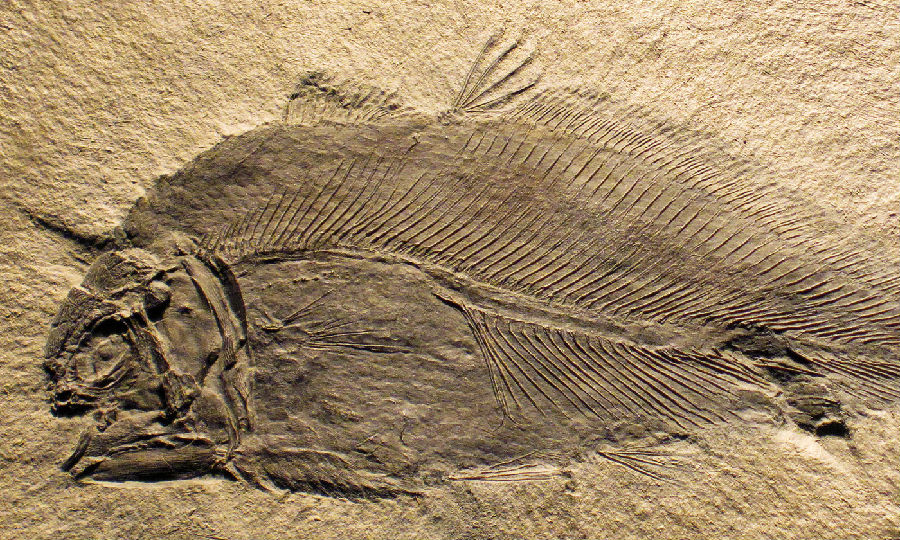Only about one bone in a billion, it is thought, ever becomes fossilized. If that is so, it means that the complete fossil legacy of all the Americans alive today—that's 270 million people with 206 bones each—will only be about fifty bones, one quarter of a complete skeleton. That's not to say of course that any of these bones will actually be found. Bearing in mind that they can be buried anywhere within an area of slightly over 3.6 million square miles, little of which will ever be turned over, much less examined, it would be something of a miracle if they were. Fossils are in every sense vanishingly rare. Most of what has lived on Earth has left behind no record at all. It has been estimated that less than one species in ten thousand has made it into the fossil record. That in itself is a stunningly infinitesimal proportion. However, if you accept the common estimate that the Earth has produced 30 billion species of creature in its time and Richard Leakey and Roger Lewin's statement (in The Sixth Extinction ) that there are 250,000 species of creature in the fossil record, that reduces the proportion to just one in 120,000. Either way, what we possess is the merest sampling of all the life that Earth has spawned.

Moreover, the record we do have is hopelessly skewed. Most land animals, of course, don't die in sediments. They drop in the open and are eaten or left to rot or weather down to nothing. The fossil record consequently is almost absurdly biased in favor of marine creatures. About 95 percent of all the fossils we possess are of animals that once lived under water, mostly in shallow seas.












